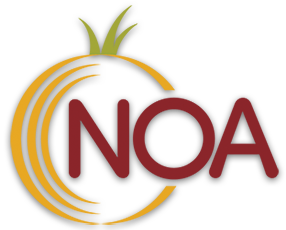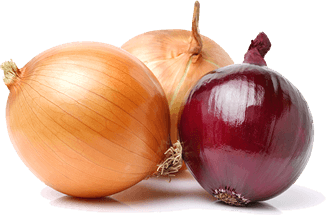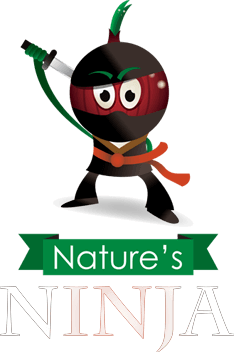The NOA tracks several issues in Washington D.C. that directly affect our nation’s onion growers and related suppliers. Below is a list of current issues:
Trade is very important to the onion industry. While currently at 7 percent of the crop, we are working hard to increase exports. NOA supports trade agreements that are FAIR to U.S. producers.
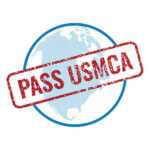 USMCA- NOA urges policymakers to approve the agreement. Canada and Mexico are leading export markets for U.S. onions. Read the latest fact sheet. Update — Jan. 29, 2020, USMCA signed by President Donald Trump!
USMCA- NOA urges policymakers to approve the agreement. Canada and Mexico are leading export markets for U.S. onions. Read the latest fact sheet. Update — Jan. 29, 2020, USMCA signed by President Donald Trump!
- Taiwan Trade Agreement needed. Taiwan enforces Maximum Residue Limits (MRLs) on onions that are very difficult to adhere to. Taiwan MRLs are lower than CODEX and certainly lower than U.S. standards.
Market Access — NOA supports full funding of Market Access and Foreign Market Development programs.
Immigration — NOA supports immigration reform that will provide access to a legal and consistent agriculture workforce.
- Farmers and shippers /packers need a reliable and dependable skilled workforce.
- Agriculture work is challenging and often seasonal with transit labor needed.
- More often than not we cannot find American workers to work in agriculture.
- There is an urgent need for Congress to pass responsible immigration reform that addresses agriculture’s current experienced workforce AND creates a new guest worker program.
Transportation – NOA supports the DRIVE-Safe Act to change the age to get a CDL license from 21 to 18 years of age. With a proper program and required training, such a change in this law could increase the number of available, and much-needed truck drivers. See letter of support here.
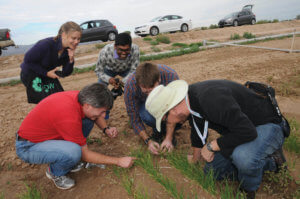
Interregional Research Project No. 4 or (IR-4) — NOA strongly supports the IR-4 program and its continued funding. Without this vital program, it would be next to impossible to collect the data necessary to get chemicals approved to safeguard specialty crops, such as onions.
Foreign supplier verification program – NOA is meeting with FDA and USDA to discuss the FSVP. This program places the same regulations on imported crops as are enforced on U.S. growers. NOA has serious doubts whether the rules are being enforced equally on these imports.
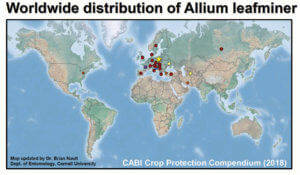
Invasive species — When invasive plants and species are found in imported crops, the NOA advocates that states should not be the sole sources to identify, interdict and quarantine. This is a federal government responsibility. Example: Allium Leafminer was found in the U.S. in December 2015; it was the first confirmed infestation in the Western Hemisphere from its origins in Europe. Damaging pests such as the leafminer must be stopped at the ports of entry. The Allium Leafminer (P. gymnostoma) is capable of severely infesting almost 100 percent of a crop. This pest could easily cost U.S. onion producers millions of dollars.
NASS onion reporting – NOA supports more funding for NASS to improve its reporting of the U.S. onion crop statistics.

